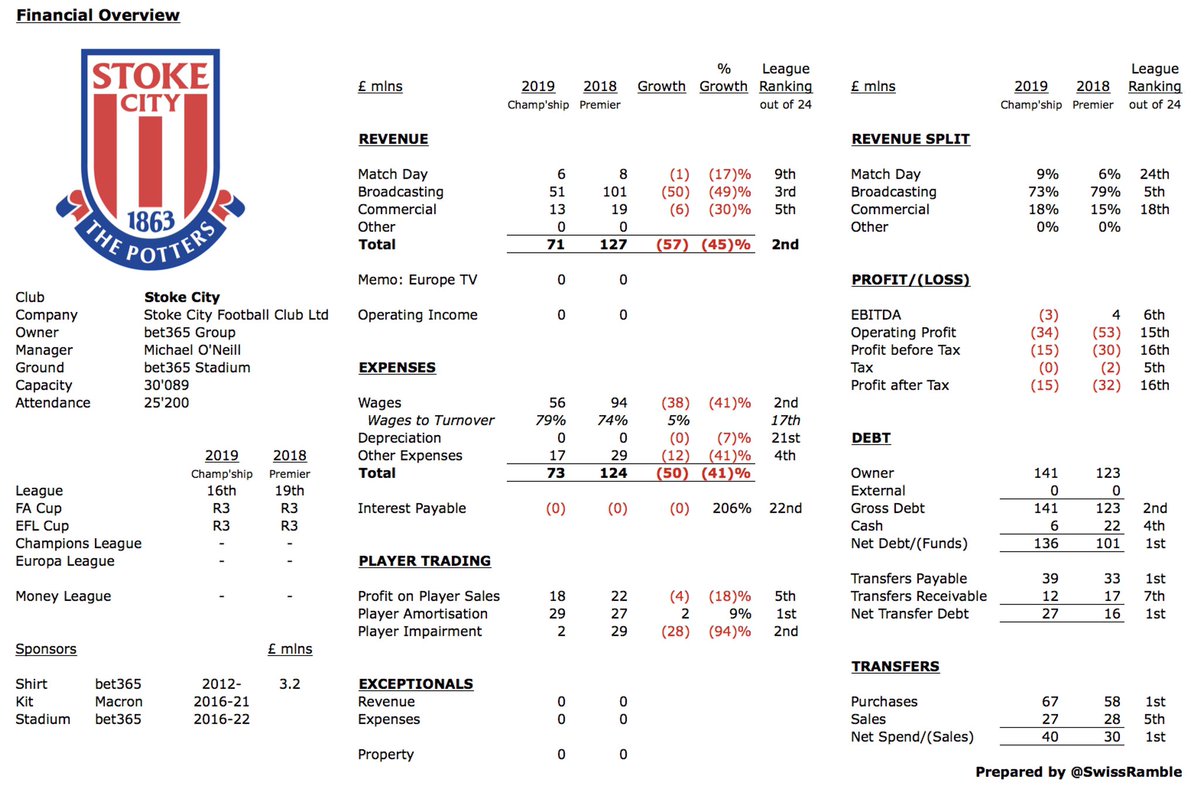I had a couple of requests for new financial fact sheets for Stoke City and Hull City. To be clear, this is not new data, but a summarised presentation of old figures. The usual detailed analysis is available on my timeline #SCFC #HCAFC
Despite relegation, #SCFC cut loss from £30m to £15m, as revenue dropped £57m to £71m, but lower wages £38m and impairment £28m. Steep operating losses offset by high player sales. 2nd highest revenue and wages in Championship. Debt to owner up to £141m and transfer debt to £67m. 



#HCAFC made profits in 5 of last 6 seasons, though fell from £24m to £3m in 2019, due to lower player sales. Lowest wages to turnover ratio in Championship of 51%. Repaid £50m of debt in last 3 years. Only £2m spent on players in 2019. 83% of revenue from TV (parachute payments). 



• • •
Missing some Tweet in this thread? You can try to
force a refresh























